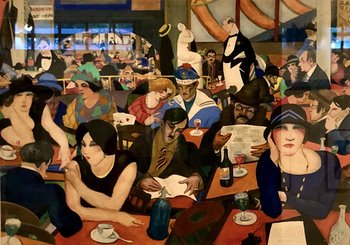
Definitions
Society | Culture |
A system adopted by a social group as a foundation for law, economic production, culture and quality of life. | A way of life adopted by a social group. |
Similarities
Both a society and a culture are typically intended to improve quality of life by creating frameworks for cooperation, shared experience and identity.Differences
A society is a system that includes a government, economy, regions, cities, communities, cultures, institutions, legal system, infrastructure and capital. Societies are largely defined by a political process whereby people may participate indirectly by voting. It is also common for a society to have a large bureaucracy that manages things.A culture emerges amongst people through a process of shared experiences. This not systematic, bureaucratic or political but rather a shared way of life that people voluntarily follow. Cultures exist at many levels such a culture associated with a nation, region, city, neighborhood, language, religion, ethnicity, profession, art or hobby. As such, a society may contain many cultures but may be strongly aligned to a dominant national culture or cultures of different regions that have united under a single society.Society | Culture |
System | Way of Life |
One society in a place as represented by a nation. | Many cultures in a place such that an individual may belong to multiple cultures. For example, a person who belongs to a national culture, city culture, neighborhood culture and music scene. |
Primarily defined by politics and bureaucratic processes. | Primarily defined by shared experiences, tradition and history. |
Relationship
Culture is one of many elements that make for a society. That is to say that a society includes a government, economic system, land, people and their cultures. A society may defend and nurture its cultures. Alternatively, it may compete with culture and attempt to suppress it. It is also common for a society to seek to standardized and unify culture. For example, a government that seeks to extinguish native languages in favor of a common language.Examples
Society | Culture |
GovernmentInstitutionsConstitutionLegal SystemEconomic SystemLand CapitalPeopleCulturesSoft InfrastructureHard Infrastructure | TraditionsHistoryNormsCelebrationsPastimesRites of PassageRolesResponsibilitiesValuesArtsEntertainment |




























